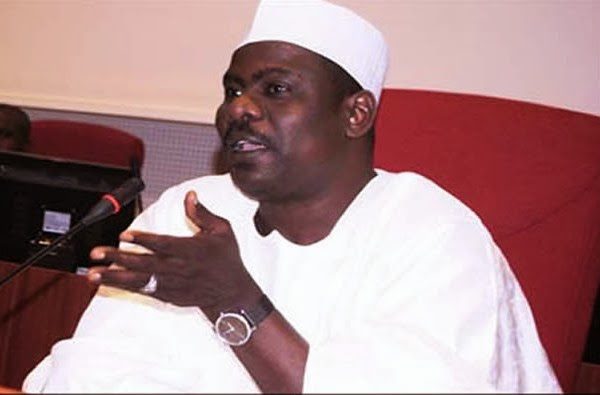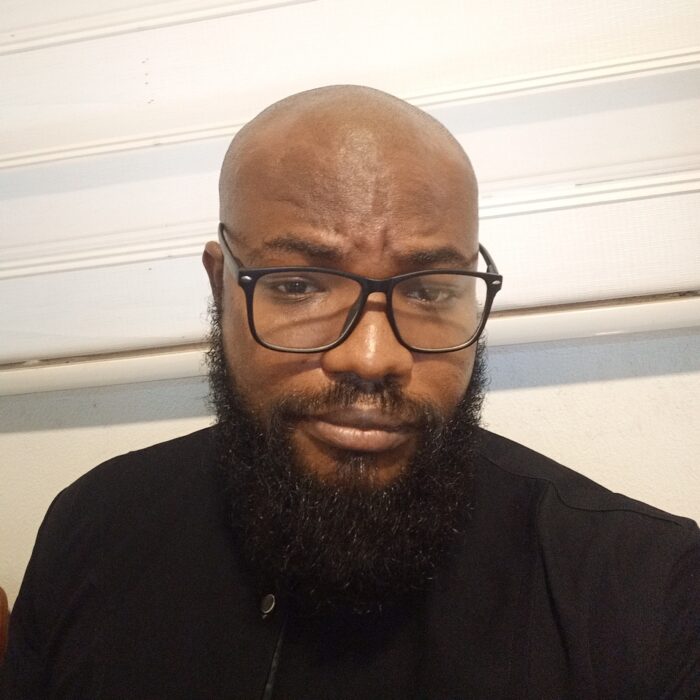Political Issues
Soyinka, Atiku And Fruits Of The Poisonous Tree -By Festus Adedayo

In the democracy that Nigeria enjoys today, Nobel Laureate, Professor Wole Soyinka’s contribution is huge and unambiguously massive. If weight of contribution were coterminous with reward, Soyinka should be awarded the presidency of Nigeria, post-military regime, like Nelson Mandela of South Africa. In physical participation in attempts to rout the military and mental contributions to same, history has reserved a pride of place for the Ake-born poet and literary colossus in the annals of struggle against despotism and personal rule of our khaki brothers. However, post-military, there are very strong, scarcely rebuttable submissions that the Soyinka subsequently pitted his tent with the Ahmed Bola Tinubu political ensemble and has thereafter been offering mental collaboration to it in its quest for power. It is generally said that anyone Tinubu associates with will enter the Kingdom of this world. Whether he will make the hereafter is however subject of a huge theological debate.
The professor of Comparative Literature has however been in the eye of the storm since last Thursday. His comment denouncing the two major candidates of the two leading political parties in Nigeria – Muhammadu Buhari of the All Progressives Congress (APC) and Atiku Abubakar of the People’s Democratic Party (PDP) has come under visceral attacks, especially on the social media. Soyinka had told the whole world last week that, in the Nigerian presidential election that will be held in the next two weeks, he would not vote for either of the two leading candidates. He said he would rather walk in a “totally new direction.” While some accuse him of blatant escapism, some mischievously claim that in his professed non-alignment lies a façade of a full-time alignment. Today, the world knows where the group he collaborates with, the Tinubu group, belongs in the current Nigerian political equation. Many times, the professor has been unusually taciturn or at best, maliciously timid in awarding blame of guilt to the APC and its governments, unlike his wont. Many have located the incubus in his association.

Since last Thursday, those whom his offer to abstain from recognizing either of the two main contenders have even turned his famous espousal in his prison memoir, The Man Died, against him. Soyinka, in the book, had written: “The man dies in all who keep silent in the face of tyranny.” Their submission is that, the valiant man has long died in a Soyinka who, rather than take a definitive stand at this crucial juncture where the fate of his fatherland is hanging in the balance, had chosen to literally shuttle towards what, in the main, could be regarded as Afghanistanism.Afghanistanism, you will recall, means duding greater, complex issues demanding a definitive attention at home and focusing one’s binoculars rather on issues outside the prism. It is a term which first gained notoriety in American lexicon in the 1980s to refer to the practice of concentrating attention on problems that occur in distant parts of the world and choosing to ignore controversial issues at the local level.
Afghanistanism, they claim, is Soyinka’s refusal to make a bold claim as to where he belongs in current political crossroads that Nigeria has found herself and escapism is his choice to walk on the path of what they say is a nebulous “totally new direction,” knowing fully well that, taking into cognizance Nigeria’s electoral history, that direction he espouses leads to anywhere else but an electoral Siberia. Some very mischievous ones among them even said that Soyinka’s “new direction” is actually targeted at railroading Southern Nigerian elite and intellectuals who believe that Soyinka can do no wrong and by that very fact, mop up knowledgeable followers of one of the candidates, Abubakar, on the understanding that the huge followership enjoyed by Buhari, comprising mainly of millions of sheepish almajairis and the North generally cannot access the thoughts of Soyinka. The professor had said, at a programme organized by the Citizen’s Forum at the Freedom Park, Lagos Island last week that he would not vote for either of the candidates. “I, Wole Soyinka, will not be voting for either of the two so-called contesting parties. I find both of them worthy of absolute rejection for a number of reasons which I will not go into here,” he had said.
Anyway, did you watch the interview granted by Nigerian journalist, media entrepreneur and television host, Kadaria Ahmed, to Abubakar, former Nigerian Vice President and former governor of Anambra State, Peter Obi during the week? Whatever are its limitations, that interview propelled Nigeria back to reckoning as a country where the precepts of democratic and electoral governance still hold sway. We all remember that debates, designed into the process of electioneering by the autochthonous owners of democracy, have been held in the breach in Nigeria. Candidates walk out of debates with baffling abandon and choose to absent themselves from them as if it they are a tea party. We know however that debate in a democracy is an opportunity to interface with our proposed runners of government, assess their thoughts on critical issues of governance and weigh their temperament, among other things. As things stand today, no one can claim to know what Buhari stands for and what is inside of him other than that expired shibboleth of kwaraption. He does not talk to the Nigerian people and his minders have conveniently shielded him from scrutiny of the people who voted him into office. This was why, at an earlier edition of this same Kadaria interview, Nigerians were thoroughly shocked and dejected that a man of such degenerative mental capacity is one administering this complex country.
So, the Atiku and Obi interview offered some measure of hope and window into the minds of those who could be runners of this country from May of this year. Comparatively articulate, smart and with a huge presence of mind, Atiku holds promise that his presidency wouldn’t be a dis-advertisement for a Nigeria that has such immense mental capital. However, the Kadaira interview refreshes the probability of the huge risks that Nigeria runs in electing Abubakar president.
First risk therein is what I term the fruit of the poisonous tree doctrine. It is a common terminology employed by lawyers when weight of evidence is at issue. Its etymology is this: First employed in the famous case of Silverthorne Lumber Co. v. United States by Justice Felix Frankfurter in 1939, this legal doctrine is of the opinion that the process of obtaining evidence by the prosecution is of consequence in criminal trials. Any evidence secured by a contaminated or illegal process, according to Justice Frankfurter, may not be admissible in court. For example, if the EFCC secures its evidence by illegally burgling the home of an accused, such evidence, in the opinion of the judge, which in America is evidence obtained in violation of the Fourth Amendment, going by the doctrine of the fruit of the poisonous tree, would most likely be excluded from being admitted in a criminal trial. However, legal practitioners say that rules of evidence have since bypassed Frankfurter’s legal doctrine as the court is now enjoined to weigh such illegally procured evidence for its probative value.
My apologies for veering into legal bombasts. The fruit of the poisonous tree is an analogy that is available in our backyards. There is this ganin-ganin tree which produces an orange species that Yoruba named osan ganin-ganin that aptly mirrors Justice Frankfurter’s.It is a very bitter and uniquely acidic orange which pierces the tongue like a furious syringe. Those days, children, excited by its multiple fruits but furious at the lien placed on its plucking by its bitterness, believed that the tree had been cursed by some god. Simply put, the bitter or poisonous ganin-ganin treecannot but produce an acrid orange called osan ganin-ganin. That, in essence, was what that Kadaria interview revealed of the Obi/Atiku ticket. I will explain presently.
Kadaira’s condescension, self-righteousness, unnecessary indignation and the crucify-them mindset she brought into the studio during that interview clearly destroyed her as an interested party who should never be allowed subsequently to conduct such nationally consequential interviews. When her familial linkage to that irreverent governor, Nasir El-Rufai was established, it removed all doubts that she had been on an assignment from a government which is propelled by an unfounded messiahnism. Granted however that at that interview, Kadaira violated what in judicial rules is called descending into the arena by abandoning the time-worn impartiality of a journalist-interviewer, her questions are actually queries that engage the minds of a typical Nigerian. Abubakar’s inexplicable wealth, his palpable subversion of the rules while in office and his commune of tainted friends, made up principally of men who are recognizable political vultures in Nigerian political equation, frighten Nigerians that if he gets power, it will be for the voyeuristic pleasure of these vultures. Imagine how vulnerable the Nigerian raw flesh would be in the throats of the Bukola Sarakis, Uche Secondus and the army of blood-baying political hounds who surround the Turaki Adamawa when he gets into office. Buhari’s own replica of vultures of power are the Rotimi Amaechis, Issa Funtuas, El-Rufais and sundry others who have made the man from Daura a feeble captive. More importantly, let us, for the sake of argument, believe that the whole estimation of Abubakar as corrupt is a ruse, borrowing motivation speakers’ lingo, impression is expression and vice versa. Can we imagine a government whose every move, policies and acts are festooned with perception of corruption?
As Abubakar has explained before Kadaira, I have no doubt that if given power, the fact that he made success of his life and personal ventures would rub off on the Nigerian economy. His experience as a successful entrepreneur and Obi’s as a successful businessman would certainly jumpstart the Nigerian economy and commerce, as against a combine of a cattle-economist and teacher of law that we currently have at the driver’s seat of Nigeria. The latter’s experiences in economic matters are nearly nil, compounded by a mental recession currently manifested by Buhari. But, after Nigeria under Abubakar has accomplished an economic Eldorado, what next? What happens to public morality? We will then be subjected to the greatest iniquities of a capitalist society where sharks of capital, constituting themselves into greyhounds, pierce their incisors into the economy and prey mercilessly on the raw flesh of the Nigerian common man. But I guess this is barren preachment to Nigerians who want the good life that a good economy brings.
The fruits of a poisonous tree, as it pertains to Abubakar, is a beautiful, fruits-laden tree which every of its harvests cannot but produce poisoned fruits. This tree stands side by side another poisonous tree in Buhari who is a good example of what a nation’s leader should not be. This is perhaps where Soyinka would coast home with a deserving trophy. The drawback of where the Nobel Laureate stands is that his intervention is coming at a suspiciously late time when it could be perceived as either a lame hypothesis or a decoy by a power-baiting group to castrate a front-runner for the presidential trophy, a trophy which the group believes is deservedly its.




















